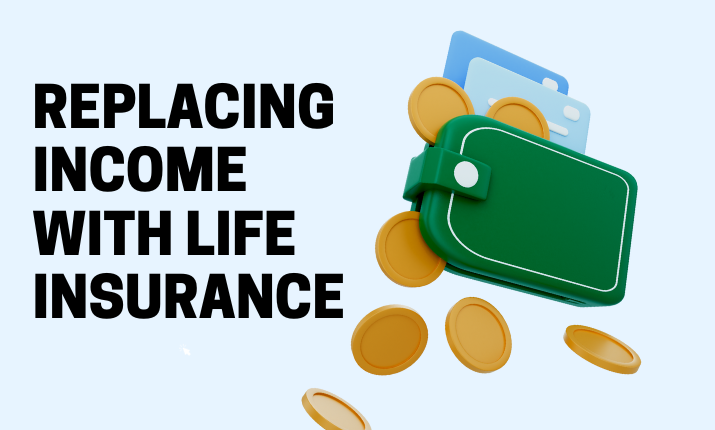Introduction
Financial security is of great concern for individuals and families in today’s uncertain world. One effective strategy to ensure a stable future is through life insurance to replace lost income. This article on income with life insurance will examine how life insurance provides peace of mind and financial stability.
Importance of Life Insurance
One Benefit of Life Insurance Life insurance provides your loved ones with financial security after your untimely demise, protecting them from being left to shoulder the financial responsibilities that were once yours alone.
Covering Debts
Life insurance can help cover outstanding debts like mortgages, car loans, and credit card balances to prevent your loved ones from inheriting them as financial liabilities.
Replacing Lost Income
If you are the primary breadwinner in your family, life insurance can replace lost income to ensure that their needs will continue to be met even after you’re no longer here.
Families With Multiple Income Earners
Loss of one income with a life insurance source can be devastating for dual-income households; life insurance offers the means for the surviving spouse to maintain their standard of living after an unexpected event.
Term Life Insurance
This policy offers protection for an agreed-upon term at a cost-effective premium, providing income replacement over that time frame.
Whole Life Insurance
Whole life insurance provides lifelong protection with an investment component, making it an effective long-term financial planning solution.
Universal Life Insurance
Universal life insurance combines a death benefit with savings features, providing flexibility in premium payments and death benefits.
Coverage Amount While selecting an insurance policy, the coverage amount is significant and must be sufficient to replace lost income and cover outstanding debts.
Premium Affordability
Ensure you find an insurance plan with premiums that fit comfortably within your budget to maintain coverage in the long term.
Additional Riders
It may be worthwhile considering additional riders, such as critical illness and disability riders, which could increase the scope of coverage your policy provides.
Research and Compare: Take some time to research different insurance providers and policies before making your choice. Compare quotes and benefits until you find one that best meets your needs. Once you’ve selected a policy, the insurance provider will assess your risk profile through an underwriting process.
Premium Payments
Your policy must remain active so your beneficiaries receive their desired benefits. Make regular premium payments to maintain its viability.
Conclusion
Protecting your family’s financial future is of utmost importance during uncertain times, so securing their finances through life insurance should be considered the next logical step toward financial security today. Take the first step now towards financial independence!
FAQs
Can I change the coverage amount after purchasing life insurance?
Generally, yes; however, consult your insurer regarding this process and any associated costs before making this change.
Are Life Insurance Premium Payments Tax Deductible?
For personal life insurance policies, premium payments typically aren’t tax-deductible; however, certain business-related policies may offer exemptions.
Who should consider purchasing life insurance as a means to supplement income?
This strategy is particularly pertinent for individuals who serve as primary breadwinners of their families or anyone relying on income to cover living expenses, education costs, or other essential dependents’ needs.
How much life insurance coverage do I need to replace my income?
Your coverage needs will depend on various factors, including your current income and family needs, existing savings, outstanding debts, and future expenses. A common recommendation would be at least 10-15 times your annual income in coverage.
Can I have multiple life insurance policies from different providers?
Multiple policies from different providers provide the flexibility to tailor coverage specifically to your needs.
Is the Death Benefit Taxable?
In most instances, the death benefit from life insurance policies is not subject to taxes when paid out directly to beneficiaries without incurring income tax liability.

